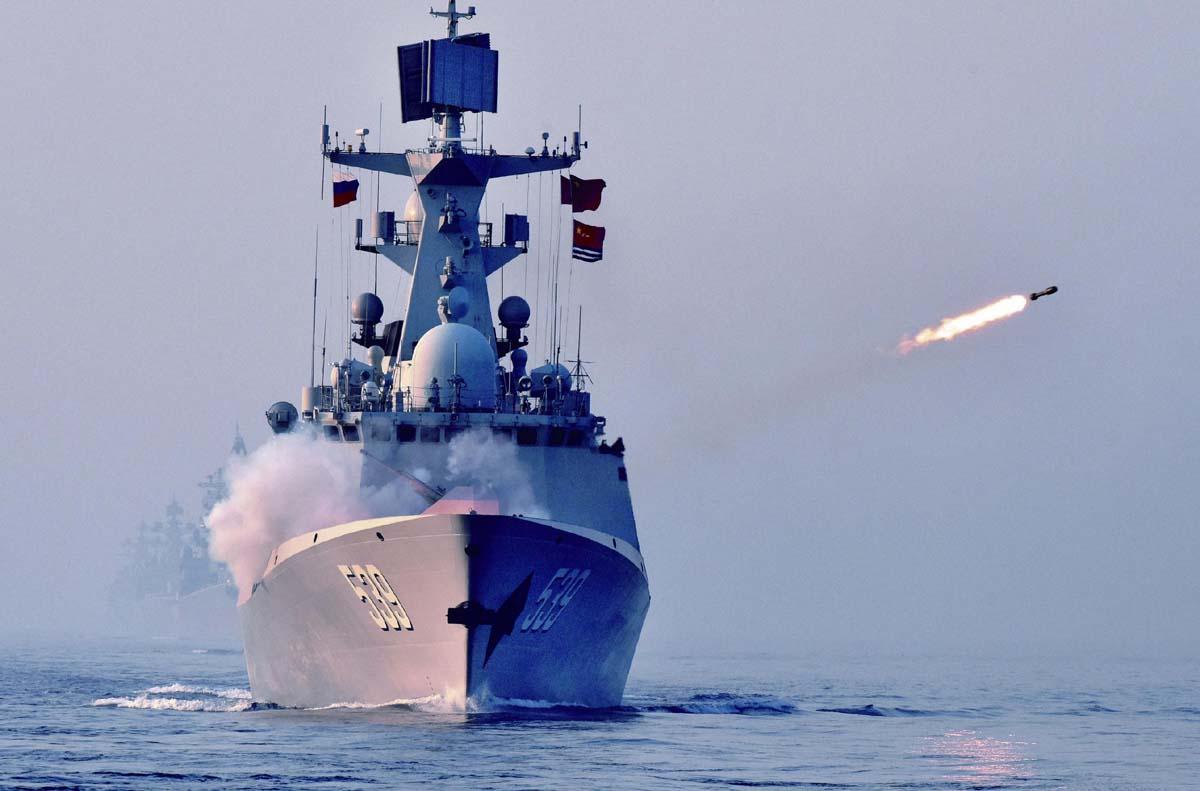Serving Peace And Justice
2019-09-10ByLuYan
By Lu Yan

For the first time, the phrase “never seeking hegemony, expansion or spheres of infl uence” has been added to a government white paper as a distinctive feature of Chinas national defense in the new era.
The report, under the title Chinas National Defense in the New Era, was re- leased by the State Council Information Offi ce on July 24.
Zhao Dexi, a researcher with the Academy of Military Science of the Chinese Peoples Liberation Army (PLA) and one of the authors of the white paper, said the statement is a solemn commitment China makes to the world.
According to Zhao, a few countries actively hype the “China threat” rhetoric for the purpose of containing and clamping down on China, but some countries believe it and worry that China will follow the beaten track of big powers in seeking hegemony. To clear the air, ease doubts and enhance mutual trust, the new white paper added the phrase and declared that China will never infl ict suffering—such as the Chinese people endured from aggressions and wars—on any other country. The development of Chinas national defense aims to meet its rightful security needs and contribute to the growth of the worlds peace forces.
Clear positions
The white paper is the 10th on the countys national defense since 1998 and the first since the 18th National Congress of the Communist Party of China (CPC) in 2012, which called on the country to accelerate the modernization of its national defense and armed forces.

Its main texts are divided into six chapters which cover the international security situation, Chinas defensive national defense policy in the new era, the missions and tasks of Chinas armed forces in the new era, reform in national defense and armed forces, defense expenditure and international military cooperation.
The white paper objectively analyzes the international security situation and Chinas security environment, noting that the world today is undergoing profound changes unseen in a century, with prominent destabilizing factors and uncertainties in international security, Wu Qian, a spokesperson for the Ministry of National Defense (MND), said at a press conference in Beijing on the day of its release.
Despite obstacles, the pursuit of peace, stability and development has become the universal aspiration of the international community, with forces for peace predominating over elements of war. Peace, development and win-win cooperation remain the irreversible trend of the times.
The report points out that the AsiaPacifi c security situation remains generally stable. China continues to enjoy political stability, ethnic unity and social stability, but also faces diverse and complex securi- ty threats and challenges, especially as the fi ght against separatist elements becomes more acute.
“The fundamental goal of Chinas national defense today is to resolutely safeguard its sovereignty, security and development interests,” Zhao said.
China has also made efforts to deepen bilateral and multilateral security cooperation, promote a coordinated, inclusive and complementary cooperation among security mechanisms. These endeavors are benefi cial for the international community to recognize, understand and support Chinas national defense policy, especially its military and security strategies, according to Zhao.
The white paper also points out that China exercises its national sovereignty to build infrastructure and deploy necessary defensive capabilities on the islands and reefs in the South China Sea, as well as to conduct patrols in the waters of the Diaoyu Islands in the East China Sea.
China firmly upholds the freedom of navigation and overfl ight by all countries in accordance with international law, and safeguards the security of sea lines of communication, the document states.

It safeguards its maritime rights and interests, security interests in outer space, electromagnetic space and cyberspace, and overseas interests. “Countries are developing relative forces in these fi elds and some are for military use. The white paper states Chinas policy and solutions, which are benefi cial for both maintaining national development interests and contributing to safeguarding world peace and development,” Zhao said.
Persistent reforms
Chen Yue, an associate researcher with the PLA Academy of Military Science and another of the authors of the white paper, said the document, with a distinct epochal character, is comprehensive and innovative and serves as an assertion of Chinas goal to resolutely safeguard its sovereignty and security.
“China, as a power, makes the choice of sharing instead of dominating. It is therefore appealing to peoples intelligence,” Sonia Bressler, a French writer and sinologist, said. “This affi rmation is unprecedented because it places peace at the heart of the political process.”
The report stresses that Chinas national security and development strategy require the armed forces to advocate common, comprehensive, cooperative and sustainable security, and actively participate in the reform of the global security governance system.
It comprehensively introduces the scale, composition and basic usage of Chinas defense spending since 2012, demonstrating its openness and transparency. Chinas expenditure is reasonable and appropriate. Compared to other major countries, the ratios of Chinas defense expenditure to GDP and to government spending, as well as its per-capita defense expenditure, remain at a relatively low level.
Nourhan al-Sheikh, a political science professor at Cairo University, told Xinhua News Agency, “This years white paper really matches Chinas principle that hegemony and expansion are doomed to failure and security and prosperity must be shared.”
Historic achievements in deepening national defense and military reform, including reform of the leadership and command system, optimization of size, structure and force composition, and reform of military policies and institutions, are also reviewed in the white paper.
The document describes the basic condition of the reshuffled PLA and Peoples Armed Police Force troops along with Chinas national defense and military development from its theoretical and political buildup to its military theory, weaponry, equipment and logistics, showing a new PLA after reform in 2016.
The white paper states that the history of the peoples armed forces is a history of reform and innovation. In the new era, China is advancing defense and military modernization across the board and deepening reform in national defense and the armed forces in all respects, with a focus on removing institutional barriers and solving structural and policy-related problems to adapt to the trends of the worldwide Revolution in Military Affairs and the demands of national security.

